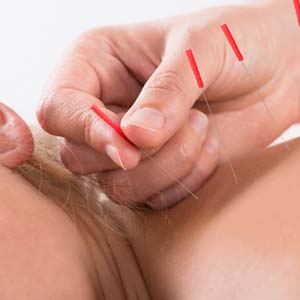Dry needling manual therapy available at Lakeview Hospital
- Category: News
- Posted On:
- Written By: Lakeview Regional Medical Center
 Get to the Point of No Pain
Get to the Point of No Pain
Lakeview Hospital , a campus of Tulane Medical Center, offers a comprehensive rehabilitation department aimed at alleviating problems associated with mobility and daily activity. The team of physical therapists at Lakeview Regional deal with a wide variety of ailments and injuries, and have now added dry needling to their available services. Dry needling is a modern, science-based intervention for the treatment of pain and dysfunction in musculoskeletal conditions such as neck pain, shoulder impingement, tennis elbow, carpal tunnel syndrome, headaches, knee pain, shin splints, plantar fasciitis, low back pain, etc.
According to a 2015 National Health Interview Survey, 124.1 million adults in the United States self-reported a musculoskeletal medical condition, representing one in two persons age 18 and over. The therapeutic treatment of dry needling is one of the most effective techniques in the world of rehabilitation in treating a musculoskeletal condition that does not get better with traditional treatment. A specially trained physical therapist inserts fine needles into myofascial trigger points (painful knots in muscles), tendons, ligaments, or near nerves in order to stimulate a healing response in painful musculoskeletal conditions. Trigger points can be caused by injury, musculoskeletal dysfunction, or overuse. The dry needle stimulation boosts the activity of your body’s natural painkillers and increases blood flow. The treatment improves pain control, reduces muscle tension, and normalizes dysfunctions of the motor end plates, the sites at which nerve impulses are transmitted to muscles. This can also help speed up the patient's return to active rehabilitation and significantly improve function.
The risks of dry needling are low when a competent, certified dry needling practitioner is performing the treatment. Possible side effects and complications include soreness, minor bleeding or bruising at needle sites; fatigue post-treatment; fainting or nausea, if the patient has a pre-existing fear of needles.
Dry needling is covered by many insurance plans, making it accessible to more patients. To learn more about the physical therapists who offer dry needling or to schedule an appointment contact the rehabilitation department at (985) 867-4054.

